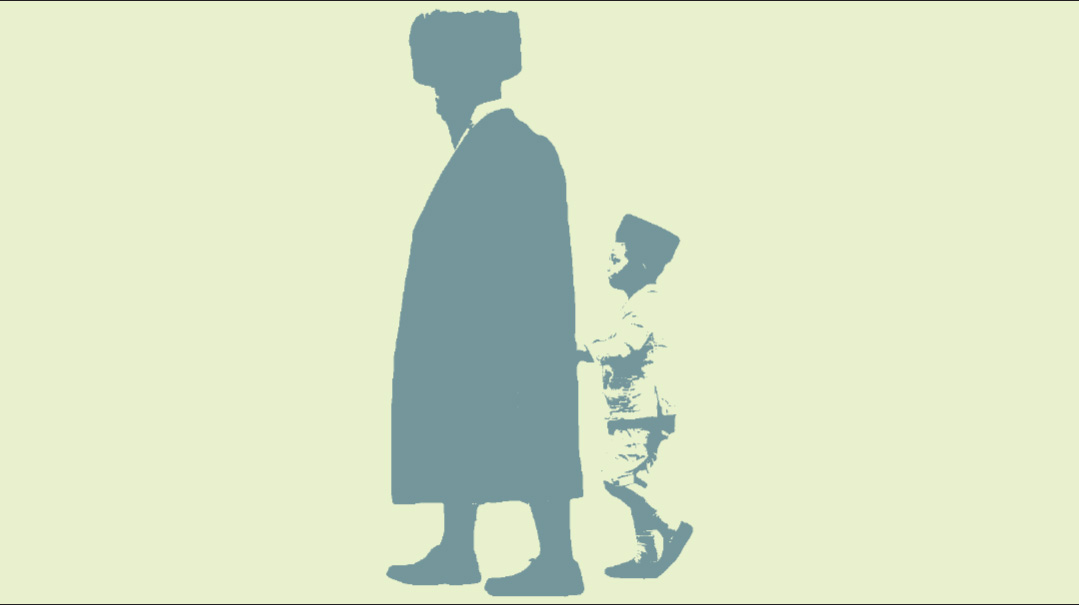Hey, NYT, Chassidim Are Also a Minority

The New York Times has a chassidic problem

Hey, NYT, Chassidim Are Also a Minority
U
nsurprised outrage probably sums up the reaction among Israel supporters to a recent New York Times editorial headlined, “The Ideal of Democracy in a Jewish State Is in Jeopardy.”
Hitting on the now-familiar themes of the rise of Ben Gvir and the Netanyahu government’s intention to cut the country’s Supreme Court down to size, the piece had the imprimatur of the Times’ editorial board, and duly riled up the pro-Israel community.
But while Israel has many defenders, far fewer will have been disturbed by another Times article that dropped shortly before the op-ed.
“Why Some Hasidic Children Can’t Leave Failing Schools” is ostensibly about the sad phenomenon of children caught in the crossfire when marriages end with one spouse leaving the Orthodox world.
But given the Times’ fixation in recent months with New York’s yeshivos — accusing chassidic leaders of trapping the children in their schools in “a cycle of joblessness and dependency” — it would be naive to read this story as anything other than the latest salvo in a campaign against the autonomy of ultra-Orthodox education.
Central to the piece were the descriptions by a string of formerly chassidic women of their struggle to get their children out of chassidic institutions — “some of the worst-performing schools in the state” — and their anguish at being hindered by “social pressure and religious institutions” in the course of custody battles with their still-religious exes.
Make no mistake: the sustained nature of the NYT’s campaign, with more hostile reporting apparently in the works, is a serious threat to Orthodox life in the state. Like attempting to shore up a fracturing dam, the resort to political deals to protect yeshivos is a sign that the public debate has been lost.
But there’s no reason to concede the public square to this liberal assault.
Experience in Britain — in which a woke education establishment tried to foist anti-Torah values on young kids — was very instructive. It showed that for modern liberals, religious rights and parental autonomy are like dessert — a luxury to be indulged only once the main course of all other rights has been satisfied.
But with the right alliances, this liberal distortion can be countered, and a credible argument can be made for yeshivah autonomy based on religious rights.
Pushback should also come in a far more direct manner — by sending a clear message that the selectivity of the Times’ campaigning zeal is unacceptable.
In an era of heightened racial and ethnic sensitivity, it’s inconceivable that the same paper would be so persistent in reporting negatively about any other minority in this way. There is simply no way that the NYT would invest such resources in going after central elements of another, more “trendy” minority’s life.
Exactly why religious Jews — a visible, often-vulnerable community — became the only non-minority minority, at the exact moment when other ethnic groups achieved a special status in liberal thinking, is worth exploring.
But after months of disproportionate coverage of the chassidic schools, the editors need to internalize one thing before any of the Times’ reporting can be debated on its merit: that the chassidic community deserves the same caution and respect that the paper lavishes on every other minority.

Ten months into the Ukraine war, with most Jewish refugees settled and Kiev holding its own, the conflict has receded from most of our minds. But for anyone connected to Reb Hillel Cohen, rescuer extraordinaire and now rabbi to the Ukraine armed forces, the front line feels much closer via a stream of videos and photos of the war-torn country and its Jewish survivors.
The above photo stands out, though, for what it says about the unexpected twists and turns of Jewish history. Who would ever have expected that a hachnassas sefer Torah would take place in downtown Kiev for a bunch of Jewish soldiers — some of them bearded and proudly religious — fighting for the freedom of Ukraine, the land of the Cossacks and Chmielnitzki?
Unhappy Campers
In the absence of Avi Blum’s Knesset Channel column this week, here’s my two agurot on Israeli politics. “Will Bibi form a government?” is all that my overseas interlocutors have been asking for weeks. By the time you read this, the answer will likely be yes, as was almost certain from the beginning, given that more political shenanigans are unthinkable.
But what took so long, and why the weeks of bickering between Bibi and his supposed besties from the religious right?
The most convincing theory lies in the gulf between Bibi’s comfort zone and the government that he himself now heads. When all is said and done, Netanyahu and his Likud party are far closer to the secular center than to the ideologically zealous politicians who head most of his key ministries. It was all well and good to campaign together against the old government, but learning to live together isn’t so easy. How will that uncomfortable dynamic affect the longevity of this government? Yamim yagidu, as Israelis say.
Burning Bright
And lastly, an observation about the public prominence of menorahs. When American presidents, British prime ministers, or Russian autocrats want to send a goodwill message to their Jewish citizens, they have a range of gestures at their disposal, both ceremonial and digital. But while they could drink Arba Kosos or blow the shofar, the most frequent gesture by far is lighting a menorah. Why is that?
There’s probably a logical explanation in the all-American mash-up of Xmas and Chanukah. Lighting candles is also more fun for your average politico than eating matzah.
But maybe there’s something deeper at work. Chazal, after all, created a unique requirement of pirsumei nisa when it came to the miracle of the victory against Hellenist forces. Unique among all the Jewish People’s victories, the triumph over Greek culture was meant to be celebrated in public.
So, it’s symbolic that two thousand years later, Chazal’s institution burns bright; more than any other Jewish ceremony, the menorah is so popular that every world leader worth his salt wants in on the act.
(Originally featured in Mishpacha, Issue 941)
Oops! We could not locate your form.







